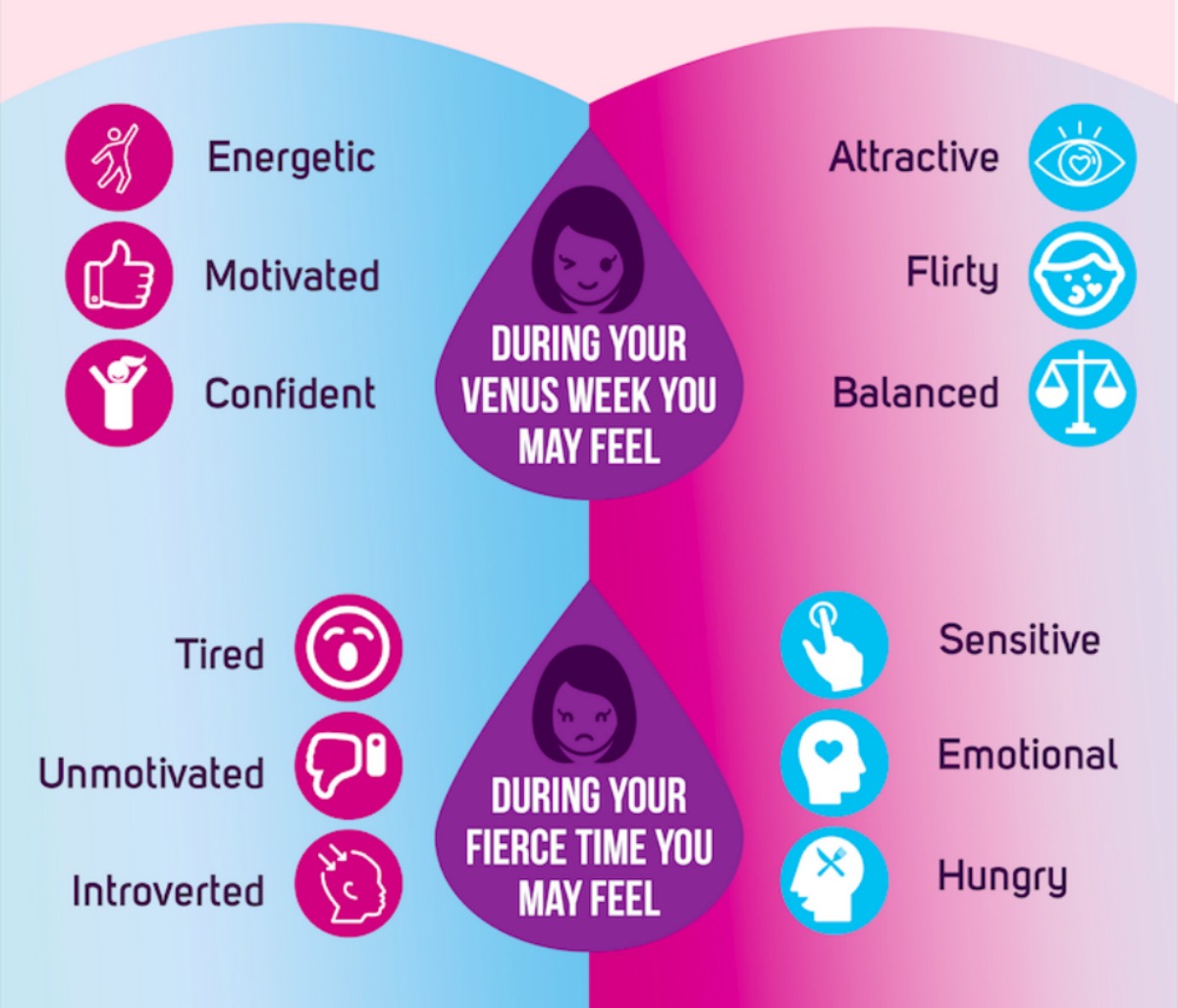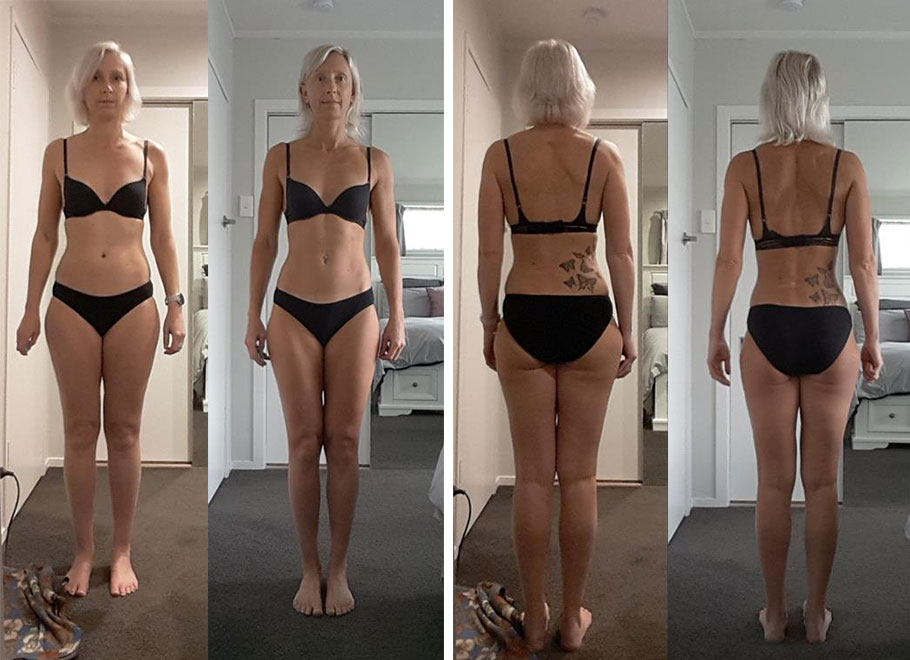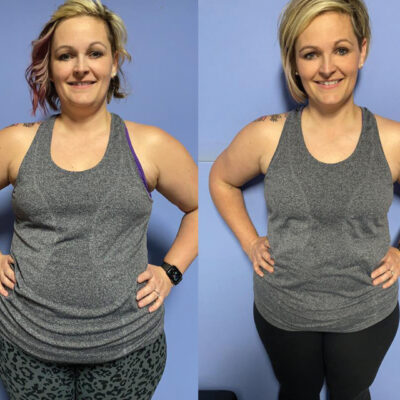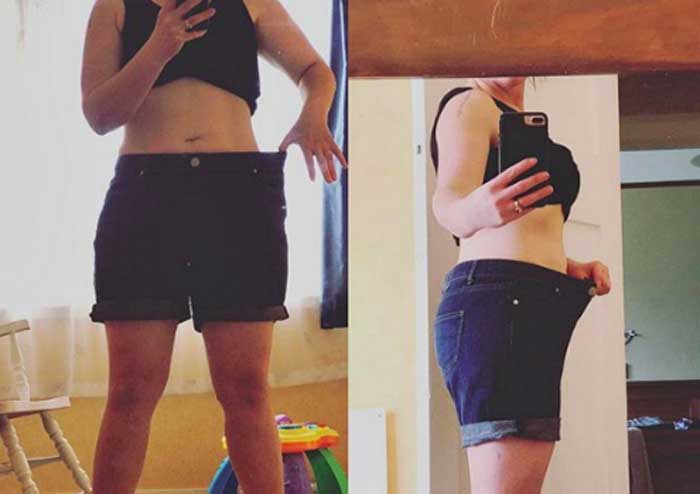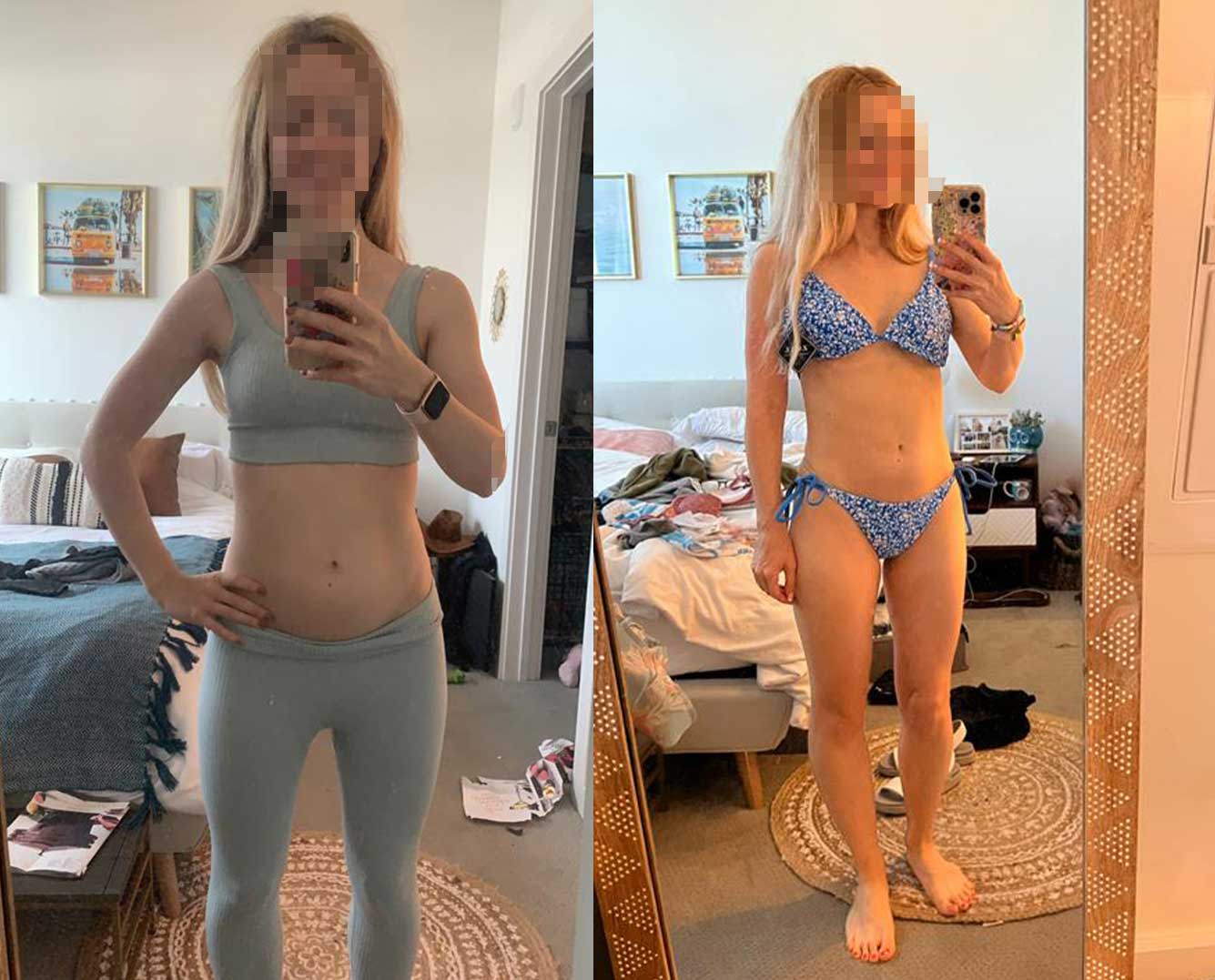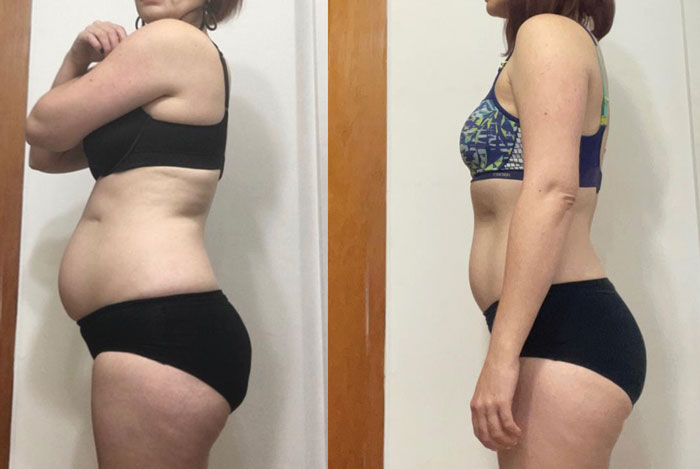What are fat days?
Does your scale go up at certain times of the month? Almost overnight you seem to put on an extra kg or two. It’s a “fat day.”
You’ll freak out about it, wonder what’s going on when you’ve been doing so well and then after a few more ‘fat days’ the weight drops off again. For some women, the weight gain is clearly linked to an upcoming period. But some women put weight on in the middle of their cycle.
What’s up with that? Have you actually gained fat? Or is it fluid retention?
Unfortunately studies have not found a clear explanation for why we gain weight cyclically. The good news is that it’s likely just fluid retention for most of us. If you have regular cycles, you can identify your pattern with a little self quantification. This article will help you find and understand your patterns so you can stop freaking out every month!
What time of the month do you gain weight?
Some women are at their heaviest during their period – but some women gain more weight around ovulation.
For many women, weight starts to climb in the second half of their cycle after ovulation and culminates with a peak on the first day of their period. Several studies have found that peak fluid retention is on the first day of menstrual flow and then it begins to drop off again. Not every woman follows this pattern though. It’s really important that you understand this because, in my personal experience and in my experience working with over 100s of women to lose weight, many women fluctuate more than once during the month.
For many women, weight will abruptly rise after ovulation, stay there for a few days before dropping again (but not to pre-ovulation weight), and then stay at that slightly higher weight until after the period finishes.
For example, I can put on anywhere from 400g to 1 kg (a few pounds) after ovulation (but I have clients who put on even more than this). During this time I feel way more bloated and fat than I ever do before and during my period. My weight will drop after a couple of days but not to what it was before ovulation. It will only return to pre-ovulation weight a few days after my period. That means I’m my lowest weight every month after my period and my heaviest just after ovulation. It’s like clockwork every month and there’s no way to stop it. It’s my natural cycle as a woman.
Ovulation-related weight gain is really common and usually disappears within a few days so it’s not something you should worry about.
What causes weight gain before your period?
Most weight gain before your period is caused by fluid retention. Studies have been unable to identify a clear link between estrogen and progesterone and fluid retention but many suggest that it is probably hormonal related. This makes sense given that most women can identify a predictable pattern of weight fluctuation based on their monthly cycle.
However, for some women emotional eating and actual increases in hunger before their period can cause some of that weight gain. Many women experience an increase in basal metabolic rate after ovulation which means they actually need more calories. This increase in metabolic rate and hunger, coupled with poor mood and fatigue which many of us experience, can make for some really bad food choices if we don’t have a strategy in place to deal with it all. For more advice on hunger before your period, you can read this article I’ve written explaining why we need more food and what to eat before your period.
Some women find it more difficult to achieve regular bowel movements during this time and this also adds to the bloating and weight gain already present. So weight gain before your period happens for a number of reasons and there’s nothing you can do to stop it.
Your strategy should be instead to identify when it happens so it doesn’t derail you every month.
How to stop monthly meltdowns
Making sure you exercise, eat well and manage your stress will help minimize fluctuations but all your best efforts won’t completely stop the weight changes.
Some women actually need extra calories and benefit from more carbohydrates in the premenstrual period. Make healthy choices during this time so that any weight gain is not actual weight (fat) gain but rather just your natural monthly fluctuation from fluid retention. Many women blame overeating on their menstrual cycle and feeling more hungry – but the increase in your metabolic rate is small. This means that you could justify an extra banana or small healthy snack for a couple days each month. It doesn’t mean you can justify binge eating. Don’t use your period as an excuse to eat poorly.
If you are eating well and looking after yourself, then the best thing you can do about monthly weight gain is to track it.
Almost every client I work with will inevitably report random weight fluctuations – and the ones who have the most success with weight loss are the ones who understand that random fluctuations – especially the ones that happen overnight – are temporary. The key is knowing when these fluctuations happen for you and not worrying about them. It always surprises me how little women know about their own menstrual cycle so in the next section I’m going to give you some advice to start being more in tune with your cycle.
How to track your weight
You need to know when you gain weight cyclically so you can predict it, recognize it and stop freaking out about it. I highly recommend that all women use an app to track their cycles and weight. There are many free period tracking apps that will help you identify your patterns.
For Android users, my favourite app when it comes to tracking weight is the Period Tracker – Period Calendar (by Simple Design, free from the Google Play store). Period Tracker is great because you can track your weight and scroll back through months, even years, worth of data to identify your patterns. Here are some screen shots from when I was using the app. You can see how my weight creeps up mid cycle as indicated by the yellow area (but overall during this time period I lost 1kg).
Clue is a another great app that let’s both iPhone and Android users track a variety of period related data, and it’s the app I currently use. However, if you are an Android user I recommend the Period Tracker app mentioned above because has better features for tracking fluctuations.
If you track for a few months consistently, you should be able to identify when your weight increases. For example, on day 18 of my cycle for the last 3 months, my weight has gone up between 600-800g. With that kind of data, you can stop worrying when it happens! It’s annoying but it’s not something to get upset about.
See what I do when my weight fluctuates as well as the questions you should be asking yourself when the scale goes up, in this video. (The whole video is helpful, but I talk about weight fluctuations and the mindset you should have about them at 8 min 30).
Staying on track
Almost every woman I have worked with has freaked out at some point about a random extra kg or two that they put on almost overnight. When that email comes in, the first question I always ask is “Where are you in your cycle?”. If someone has been consistently following a good eating plan and hasn’t done anything out of the ordinary – it’s almost always cycle related weight gain. So we don’t worry about it.
The problem is the women who don’t know their patterns, freak out and start a downward spiral when their weight goes up. They binge eat for a couple of days before reaching out for help. By then, the damage is done and the weight gain is real and lasting.
Knowing what time of the month they gain weight cyclically would save a lot of heartache and frustration.
Even when you know your patterns, you can sometimes still feel disappointed when you see the scale go up. You’ll know what’s going on so logically you shouldn’t worry about it. However, we put so much power in the scale that emotions prevail and we can’t help feeling a bit gutted. That’s normal too.
The key is to not get side tracked every time you gain a bit of weight. When it happens remember you aren’t superwoman and weight loss is never linear. If you are sticking to a good program, you need to be confident that it will work for you. As long as your weight is trending down over time, you are on the right track.



